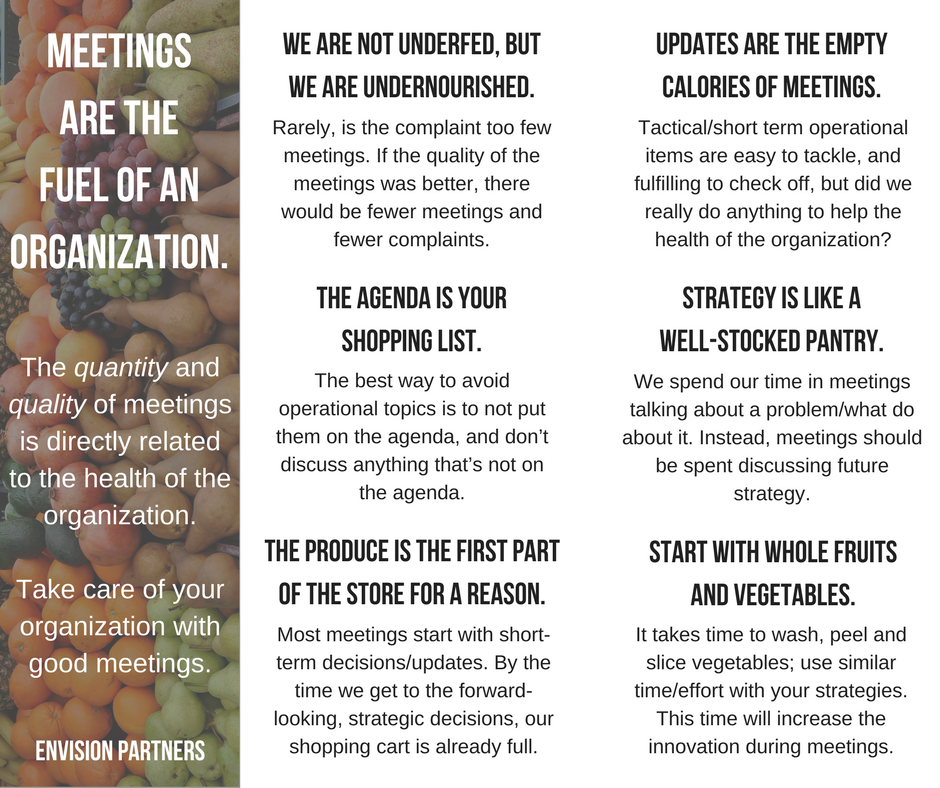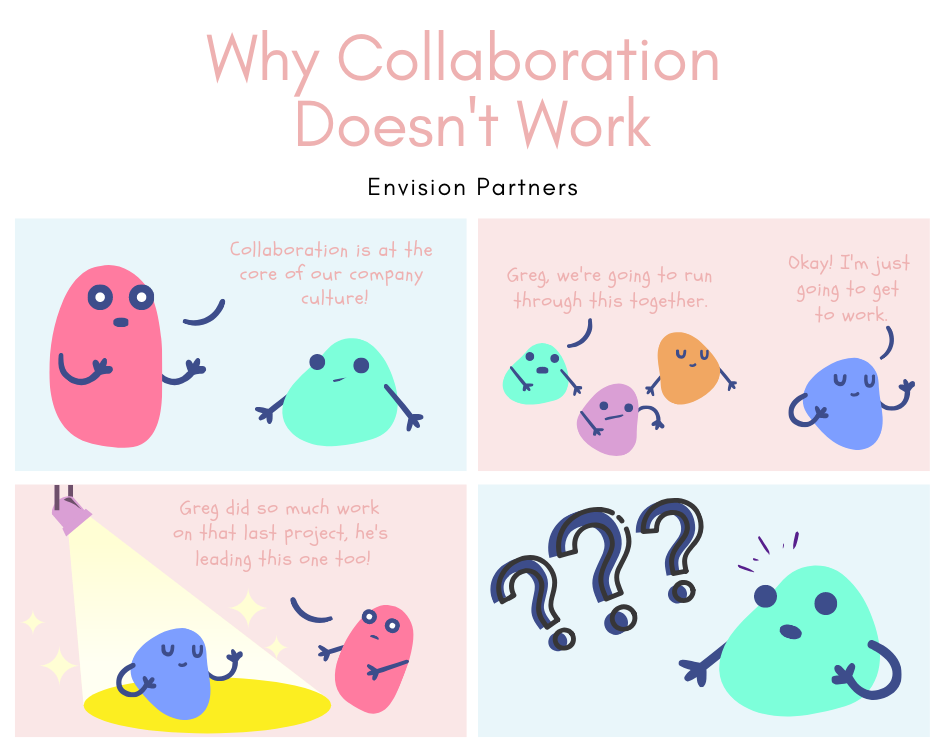Junk-Food Junkies
Meetings are the fuel of an organization. The quantity and quality of meetings is directly related to the health of the organization. Food is fuel to the body, and the quantity and quality of food is directly related to the health of the body.
We are not underfed, but we are undernourished. Rarely, is the complaint too few meetings. The complaint is too many meetings. With meeting fatigue, it’s a tough conversation to talk about making better meetings—or to even talk about meetings at all. Like junk-food, without purposeful effort, the solution to poor meetings becomes more poor meetings. If the quality of the meetings was better, there would be fewer complaints about the number of meetings –and ironically, there would be fewer meetings.
Updates are the empty calories of meetings. Tactical/short term operational items are like potato chips—you can’t eat just one. These items are easy to tackle, and fulfilling to check off, giving the feeling that we’ve really accomplished something–that is, until we get to the bottom of the bag and realize it wasn’t all that useful. Did we really do anything to help the health of the organization?
Operational issues should be delegated to subcommittees as much as possible. If there is no need for other team members or for you to hear about the details of an operation, then the uninvolved should not be present. If there is another way to communicate updates, then that form of communication should be used–a slide deck, a video or an emailed report achieve the same end. If needed, meetings should be set aside especially for such updates—and they should be short, like eating a snack, not a meal. Full-on-hours-long update meetings should be as rare as the office Christmas party in which you eat too much junk food and swear to never do that again.
The agenda is your shopping list. The best way to avoid eating junk food is to not buy junk food. Fill your shopping list with just good stuff and don’t buy anything that’s not on that list. The best way to avoid operational topics is to not put them on the agenda and don’t discuss anything that’s not on the agenda.
Strategy is like a well-stocked pantry. Snowstorms will happen. The electricity will go out. If the equivalent happens at work, we spend all of our time in meetings talking about that problem and what do about it. Instead, meetings should be spent discussing future strategy. How much of your last meeting was about problems that could have been reduced or avoided had more time been spent thinking it through ahead of time?
The produce is the first part of the grocery store for a reason. Most meetings start with reminders/short-term decisions/updates. By the time we get to the forward-looking, strategic decisions at the end of the meeting, our shopping cart is already full. There is no room for more (no time, no mental space), and these are the items that truly make our organization healthy. Once we have tempted our mental sweet-tooth with the junk food of meetings, we aren’t good at switching the way we think from short term to long term—from shallow thought to deep thought. Chips and soda are the last items in the grocery store, and maybe if there’s no room in the cart, we won’t buy them at all. Would it be all that bad?
Start with whole fruits and vegetables. Use the time in your meetings to explore recipes, to process them. Like the time it takes to wash, peel and slice vegetables, use similar time and effort to get to know your strategies. This hands-on time will increase the creativity and innovation during meetings. We are not supposed to work through strategies at the same speed as we do operational topics. Use a fire, not a microwave. While you are at it, pick up a few food items you’ve never tried before to expand the repertoire. Rutabaga anyone?
Take care of your body with good food (and sleep) and take care of your organization with good meetings.











A 3-step process to help you and your employees create lasting behavioral change.